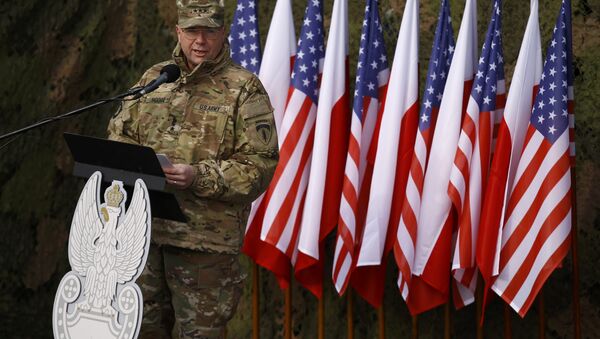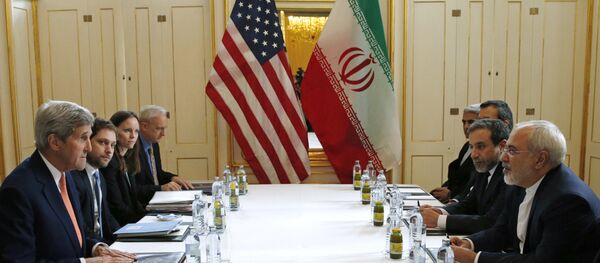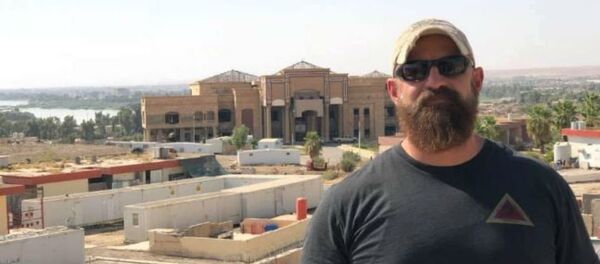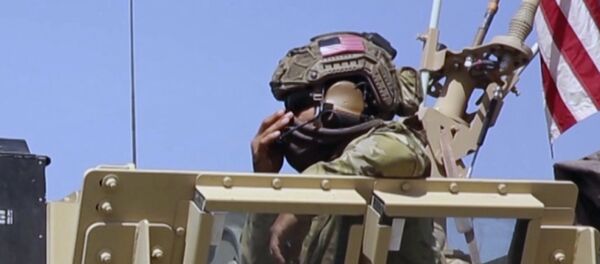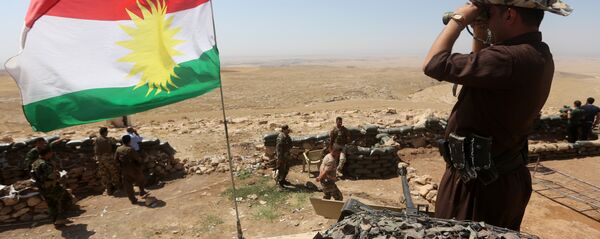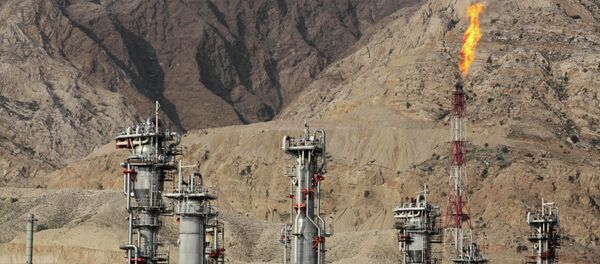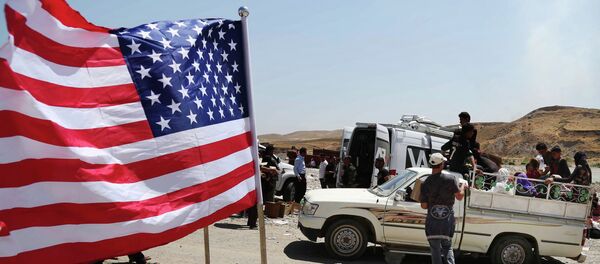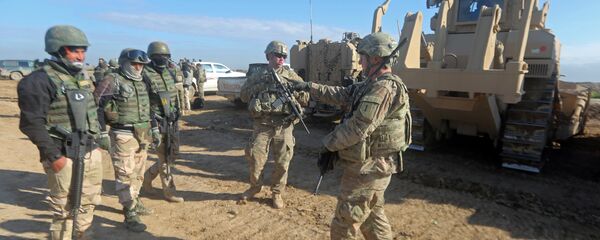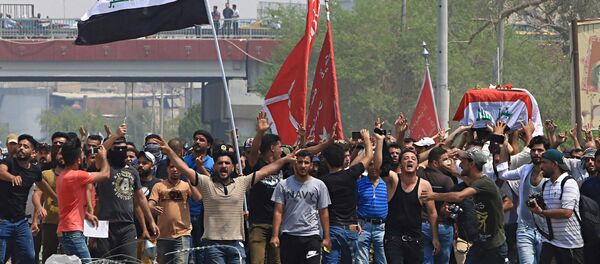Sputnik: What did you know about the situation in Iraq before you went there and what did you know and thought about Saddam Hussein? What was your impression of that?
Lieutenant General Ben Hodges: We knew a lot about the Republican Guard, the traditional forces that the Iraqis had. Of course we had learned from watching in a Desert Storm. We studied the situation for quite some time, so I had a good sense of what their artillery, and armour, and air defence capabilities were, the logistical situation. I think we had a good feel for that. It's been a lot of time planning for that, both when we were still in the States and once we got into Kuwait.
What, I would add, personally I did not appreciate was how the people would react after the regime fell. Of course as a brigade commander, I was focused on my responsibilities but I personally failed to fully anticipate what needed to happen after the Saddam Hussein regime fail. So, I can't speak for other people, but I know in my own case I did not fully anticipate what needed to be done. So as a result in the early weeks after the fall of the regime we all had to do a lot of learning and adaptation. Fortunately, my division commander, my boss was general Petraeus and he was very fast in making the proper adaptation.
Lieutenant General Ben Hodges: Well, of course, when we realized that there was not a large post combat reconstruction plan with resources and people in place. I mean that sort of transition. Clearly there were people, there was a reconstruction program that wasn't established, but I was not very aware of it. Now, again, I take responsibility for not informing myself. But the reestablishing civilian authority, for example, the Ba'ath party or every civil administration job, all the key people who ran the cities, the government, everything were all Ba'ath party members. And so of course, when the decision was taken that nobody in the Ba'ath party could work anywhere, that left a huge vacuum. And so general Petraeus was very quick in figuring out, okay, we have to find talented trained people to administer financial institutions infrastructure, police, all those kinds of things. So he was very quick and he pushed all of us to do things that would get people back to work with our reconstruction projects and so on, that's what I mean in terms of adaptation local elections, for example. All of these kind of things I personally had not even thought about. But I ended up spending probably 10 months of the 12 months I was there working on just that.
Sputnik: When you were moving into the Iraqi territory did any Iraqi forces tried to stop you? Did you have any fights on the way?
Lieutenant General Ben Hodges: Yeah, sure. The biggest fights that we had were around the city of an-Najaf. The Third Infantry Division, which was in front of us, did most of the heavy fighting up to the Najaf. And then of course, going into Baghdad, but we fought mainly Saddam Fedayeen, around Najaf because Najaf had originally been bypassed in order to focus on Baghdad where we thought there was gonna be a huge fight in the city. And, now I'm talking specifically about my brigade, then the Saddam Fedayeen were still inside Najaf, and they were coming out and interdicting the supply lines, we thought would make it difficult for third division to do it's fight in Baghdad. So we were sent to Najaf to stop that, we ended up having a clear Najaf. But that was a much sharper fight than I had anticipated. I had not fully appreciated that the tenacity and the skill of the Saddam Fedayeen, which were basically a sort of a militia that was personally loyal to Saddam as opposed to a regular army.
Sputnik: May I ask if you had any casualties on the way?
Lieutenant General Ben Hodges: Yes. We did lose some soldiers. Fortunately, the casualties were not nearly what we had anticipated. One casualty is always to be something that you regret. And you always plan to do everything that you can to make sure that there's never a fare fight, that we always had overwhelming combat power anytime we put a soldier at risk. So, yes, we did, but fortunately they were the amount of casualties that we had in the early days were not nearly what we were expecting might happen.
Lieutenant General Ben Hodges: Well, during the first year… I'd rather not address a personal thing like that. Let me just say it that way.
Sputnik: What was your impressions of the country?
Lieutenant General Ben Hodges: Probably three different impressions. Number one, you saw extreme wealth and extreme poverty. I mean, there clearly were people that had huge homes, massive herds of sheep. And great wealth. And then there was squalor, I mean, people that were extremely, extremely poor. But the wealth of course was controlled by Ba'ath party members and certain tribal leaders. So that, that was one impression. A second impression was that I'm not, I'm not an expert on Arab, I'm not an arabist, you would say, and don't speak their language, I haven't studied the history extensively, but during my first year I began to realize that particularly for the Sunni Iraqis, the tribe was everything, national borders, none of that mattered, government didn't matter. It was the tribe. And so, we had to learn to find the right tribal leaders and work with them on taking care of what needed to be done for security and reconstruction and so on.
So that was an impression. The tribe and family were important for the Shia, but the religious aspect seemed to dominate. Whenever I was interacting with Shia the religion seemed more important. With the Sunni the tribe seemed more important.
My third impression, and I'll stop after that, is there was, you could see the potential. I mean you had a, — for a variety of reasons, of course the British had been there for a long time — There was very good infrastructure in many places, highways, bridges, even through the desert. And as you get into the big cities, I mean, you're talking about a solid, well-constructed buildings. Of course, beautiful mosque in Najaf, beautiful structures. And then of course you could see in certain places the ruins from 3000 years ago in Nenevah, that was fascinating to see.
Sputnik: You mentioned about dealing with different tribes. So why of my questions was, how did the Iraqis meet you? I do understand that they have a very separated society of those small and big tribes. So how did you manage to deal with all of them? So was it mostly successful?
Lieutenant General Ben Hodges: Occasionally people would come forward and say, I am the head Jaburi for this area. And so you had to start figuring out, okay, somebody they might say they were the seniors Jaburi, which was the main tribe in Northern Iraq that we dealt with. Then you realize, okay, this is not really the main Jaburi, it is either he's a poser or he was sent forward by the head guy to see what's going on. So it was partly by experimentation, but also partly by… thankfully there were US army special forces that did know the area, that did understand the track, who had been working here or studying it for years. And so they were very helpful in helping us figuring out who was the right person. And then of course I had a wonderful interpreter who was Iraqi born, this guy was superb. And he was very, very helpful to me in understanding the tribes and understanding who was who as he knew all this. And he had lived in the States for 10 years, so his English, his understanding of America was also outstanding.
And of course I had that part of my area of responsibility included a large section of the Kurdish region as well. So I had Kurds, as well as Arabs in my area of responsibility south of Mosul. And so, I was very lucky to find two Kurdish officers who both had been trained in the Iraqi army, but then they left and were part of fighting for Kurdish forces. And so I had them to help me deal with Kurds. So there's a lot of experimentation and a lot of sharing of information with my fellow commanders who were going through the same thing.
Lieutenant General Ben Hodges: Well, of course, up at the division headquarters they had some advisors who helped us. But really what I did, I just followed the model of the example of General Petraeus. And he had found the ways to put Iraqis in charge of things. One of my battalion commanders had an idea to establish a council in his area where he had two Iraqi districts where they would meet kind of like the county commission, if you will, to meet and discuss reconstruction, jobs, security issues, problems, you name it. And I liked his idea so much that I just adopted and expanded his idea to my whole area. We called it the Tigris River Valley Commission.
And once a month we would meet with the tribal leaders, the mayors or district chiefs, if you will, the head policemen from each district and others. And we would meet each month in a different district so that they all got to know each other and could work with each other and then they would help prioritize where money needed to be spent on what projects. And I turned to them to help solve local problems so that we had Iraqis solving Iraqi problem.
And I also hired four or five former Iraqi generals who were Ba'ath party members, but of course when, when they were all kicked out of the military by the decision of the administration, they were sitting at home, and there was nothing to do, and they were causing problems. So I hired five of these guys to be my board of advisors and they helped.
Sputnik: It sounds like you were to a great extent dealing with diplomatic and political issues rather than military ones.
Lieutenant General Ben Hodges: Well, yes it was, but you know, in the US army colonel is expected to think strategically and a General Petraeus was doing the same thing. And so he led by example and that was his expectation of us, you know, in the tradition of the hundred first airborne division is that people are willing to take risk and there was a culture of expecting you to use your initiative and be creative. So I felt, I always felt comfortable in that kind of environment.
And, I had very good subordinate commanders, my battalion commanders who were responsible for huge areas. And so I depended on them to deal with local tactical problems. And I spent probably 90% of my term, once we got settled into northern Iraq, I spent about 90% of my time with Iraqis. That was the state of things there at that time. And I think the hundred and first airborne division had the right approach for how to deal with this. Now, of course, shortly after we left, we had the rise of al Qaeda in Iraq and the war changed and in a significant way in 2005, 2006 and of course, you know, the rest of the story.
But that first year I felt like our division in northern Iraq was approaching this in the right way. And I actually was quite optimistic. I never dreamed that we would still be involved all these years later.
Sputnik: As far as I understand changes to the worst began in 2004 when Muqtada al-Sadr appeared. If you did such a great job to build connections with the Iraqis and you did so much for them, what do you think was the reason for that to happen?
Lieutenant General Ben Hodges: Keep in mind, in Northern Iraq we had almost zero Shia. I mean, it was a pure Sunni area, so we didn't have the influence of the Muqtada al-Sadr up there in Northern Iraq. So that's part of it. Number two, the Kurds were very effective and powerful, and had a lot of capabilities there. And so I didn't have to worry. Some of my fellow commanders had a much more difficult environment in which to operate, particularly if you are in Sadr city for example, or South in the outskirts of Baghdad or out in the Al Anbar.
It was a different environment out there, particularly with these guys coming across the border from Syria because there was safe haven in Syria. So those commanders, my peers had a much more different or difficult challenge than what I dealt with. So I want to be careful. This is not about what we did it right, and anybody else did it wrong. We did it right for our particular circumstances.
Now, I think, as you know, and you can look up the exact quote, but it's from Clausewitz, and he says that the first and the most important duty of the general and a diplomat is to understand the nature of the war before you start or before you enter it. And I would say that we, the collective we did not truly appreciate and understand the nature of what was going on, what would happen. I think General Petraeus probably did, but I don't think many other people did.
So that's why it ended up with really unfortunate policies like disbanding the army. These were decisions that really made us pay the price later on. And I think also we may have picked the wrong people in the beginning, people like Chalabi. Turns out he had zero support in Iraq. So that was a wrong person to expect that he could take over.
Sputnik: And Paul Bremer?
Sputnik: When's the Iraqi army was disbanded, what consequences did you see on the ground? Did you feel it immediately?
Lieutenant General Ben Hodges: I did not feel it immediately because honestly, the Iraqi army had evaporated early on. I mean, as we continued to move north we would find equipment that was abandoned everywhere. Vehicles, helmets, uniforms. I mean they deserted as fast as they possibly could. The ones that did not get killed outright in the first few days they evaporated. And so it wasn't like, in my experience, there were big formations standing around and sitting in their camps. They were gone. I mean, we've found so much ammunition stockpiles everywhere, incredible amounts of ammunition everywhere and abandoned — tanks, artillery, air defence systems, jets, you name it.
But over time, after the decision was made to disband the army, you begin to realize that you've got this large population of generals and colonels that are now sitting at home and it is humiliating for them, if you at least a division commander, a corps commander or whatever, and now they're sitting at home without a uniform, no responsibilities, no income.
And, I don't know that everybody appreciated the significance of that. But that's why I decided I would try to do my little part and I used what resources I had to hire some of them to work for me. So at least they were put back in responsibility and had an income.
Sputnik: Anyway, thousands of people, thousands of former Iraqi soldiers were unemployed at that moment? So as far as I understand part of them became insurgents, part of probably the members of ISIS. Was it kind of the beginning of ISIS birth?
Lieutenant General Ben Hodges: I don't know. I'm not the expert on that. I'm sure that many of the members of al Qaeda then became ISIS*. I'm sure that there were people who were originally in the army. But I would be reluctant to say that that was the cause of ISIS. I mean, there was Islamic extremism long before US and its allies ever went into Iraq. So I know there people would like to point the finger and say it's America's fault that, you know, in and out you had terrorism. That's just not the case. But certainly there's no doubt in my mind that there were people from the Iraqi army that joined or helped become part of what is now ISIS.
Sputnik: Did I get it right that with the help of Kurdish forces, you managed to keep most of the control of your area? But how active the insurgents were there?
Lieutenant General Ben Hodges: Our second brigade, first I was in first brigade, our second brigade went into the city. And so of course Mosul was the second most important city in Iraq. It had a huge military population and Sunni stronghold, if you will, in the part that was not Kurdish. And so, yes, of course there was fighting, I don't want to say we just walked in there and everything was okay. But finally we'd been looking for Uday and Qusay, Saddam's two sons, we had been looking for them for quite some time and it was a combination of special forces and our second brigade Airborne 101, and it was also good intelligence work that helped locate them, hiding right there inside Mosul.
So I am proud that some of my soldiers, they were part of the Second Brigade, they were attached to second brigade, were involved in that, but all the credit should go to the special forces and the second brigade for killing Uday and Qusay.
The image of the fighting in Iraq really didn't get started seriously in our area, I should say, until late 2004. I think we in our first encounter with IEDs (improvised explosive device) sometime in maybe this summer or fall, I don't remember exactly of 2004, and of course it soon became much more significant, you know the EFP (explosively formed penetrator), the worst kind of IED that were manufactured in Iran and those things started showing up. But that was mostly after my brigade had gone home. We did lose some soldiers injured and killed to IEDs, but those were the original, a smaller, cruder type IEDs.
Lieutenant General Ben Hodges: Honestly, I don't know. I would imagine that it would have been preferable to capture them if possible so that then they could be tried in legal system of justice. But, again, I was not involved, so I don't know.
Q: How did you learn, that Saddam was captured?
Lieutenant General Ben Hodges: I remember we were sitting in the division headquarters for one of our periodic updates, with all the brigade commanders and the division commander and staff we would come together, I don't know, maybe every two to four weeks we would come to the headquarters in Mosul and, because our division was spread out from Syria all across of Northern Iraq.
And I remember we were sitting in there and the announcement was made and I remember feeling elated, like, "Wow!" This shows perhaps how maybe I was naive, but I remember being elated that he had been captured, that that represented such an important thing because whatever mistakes we made there's no disputing about the fact that Saddam Hussein was a cruel dictator that was responsible for the death of thousands of his own people. And so we felt like we had accomplished something very positive to protect civilians from a dictator who killed his own people. So it was very satisfying to hear that this did happen.
Sputnik: What's the kind of a feeling that, well, the war is over or what?
Lieutenant General Ben Hodges: I think we were mature enough to know that just a capture of one person does not automatically mean that that's the end of the war. But it certainly seemed that the end was much closer.
Sputnik: How can you assess the role of the Iraqis in Saddam's capture? They assisted as far as I understand.
Lieutenant General Ben Hodges: Perhaps. I don't know. I mean it would have been special forces working with Iraqi counterparts, intelligence and of course the regular army soldiers that were responsible for that region out of Tikrit. But I don't know.
Sputnik: I read that as the person who allegedly disclosed Saddam's whereabouts got somewhat 30 million dollars reward. Did you hear that? They did pay him?
Lieutenant General Ben Hodges: I don't know that. I remember there was always a reward out for information leading to the killer capture or people like that. That's not unusual. That's true in almost every conflict. So I wouldn't be surprised and there's nothing wrong with it in my view.
Sputnik: Did the later execution of Saddam Hussein affect the situation in any way? I remember that it was something a little bit unexpected.
Lieutenant General Ben Hodges: I don't know why it was unexpected. I was not in Iraq at that time, I don't remember specifically what the local effect would have been. There were a lot of people that were happy with it and I'm sure there were others that were not. But similar to the end of the Second World War where you had the Nuremberg trials and then you also have to deal with war criminals, this sane and appropriate to have the whole process. Seems entirely legal and appropriate.
Lieutenant General Ben Hodges: Three things. Number one, I would not say that we know definitively that there were no weapons of mass destruction. I mean it's well known and documented that he used chemical weapons against his own people. So whatever happened to what he had — was it sent somewhere else, was it destroyed or maybe it was never as much as what we thought — I'm not willing to say there was no chemical weapons.
But certainly my unit, we did not find any. I can't explain that. It's puzzled me for a long time. My belief was that it went into somewhere into Western or Eastern Syria. Whatever they had was sent away. I just don't know that for a fact.
Number two, we lost thousands of terrific young men and women, who were killed in Iraq. And I hope that that will not have been in vain, that at some point, there is a stable Middle East that makes that kind of sacrifice worthwhile.
And then number three, I would go back to this famous quote by Clausewitz about the importance of understanding the nature of the war you are about to get in before you get into it. And we certainly failed in that regard.
Sputnik: But then the same scenario was a repeated in Libya. So it looks like there are still some lessons that the US government should learn from war in Iraq.
Lieutenant General Ben Hodges: I think that we've got to be very careful. First of all, what is the regional strategy? What is the desired outcome for what you're going to a region, whether it's the Middle East or Africa or the Mediterranean region, or the Black Sea region? Nations, alliances need to have a very clear strategy for what it is you want to accomplish before you set about doing something. I do believe in the moral responsibility of helping protect innocent civilians from leaders who are killing their own people. The international community has a responsibility to do whatever it can, whether it's through sanctions or diplomatic isolation or diplomatic pressure or agreements or finding ways to protect innocent people. So the United States and other leading countries in the world have the responsibility to try and do that. Regime change is a huge risk. If you don't have yet… the locals don't have the right person that can pull the country together, then you have a real problem.
Sputnik: These days when again we have unstable situation in the Middle East do the US and the international community have some clear strategy in the region. Because Iraq is still unstable, terroristic acts happen regularly. We see Libya…
Lieutenant General Ben Hodges: Well, for sure ultimately it's up to the people themselves, they have to decide what they want to, what king of government they want to have and how they are going to secure themselves. So, yes, there is still some instability in Iraq, but it's just not as bad as it was. But I'm not the expert on Middle East anymore. You know, my experience was from, you know, 15 years ago and I've been focused on Europe in the past six years or so.
Lieutenant General Ben Hodges: Well, I think there are several factors that contribute to instability in the Middle East. Number one is Iran. And number two, Russia continues to support the Assad regime, which uses chemical weapons on its own people. And so, I would prefer to see cooperation between the leading countries of the world to assume that sort of stability. But Iran in particular has no interest in stability in the region. They want to see the destruction of Israel, they want to see the destruction of Saudi Arabia, they want a Shia conflict, and until you have a much more moderate regime in Iran, I think we're going to continue to have problems here.
Sputnik: You mentioned the loss of thousands of American guys and even more Iraqis including civilians were killed. What kind of feeling do you have about those losses, how justified was it?
Lieutenant General Ben Hodges: As a human and as a soldier I believe when we went in, I believe we were doing exactly the right thing and then we did our very best to protect civilians and also to make sure that our soldiers were as prepared as possible. And we believed in what we were doing. And I'm sorry for the loss of a terrific young men and women from the American point as well as from our allies and the families that had to deal with that loss, or in the case where so many young men and women, we're terribly wounded, lost arms or legs or deal with those kind of problems.
That's why people in the military are the least anxious to get into a conflict because they're the ones that are going to feel the effect more than anybody else. And so that's why it's so important that you have strong military that's prepared, well trained, to deter, to prevent a conflict versus having to execute it. And that's why I'll go to it for the third time, it's so important to understand the nature of what it is you get into before civilian leadership turns to the military and says hey, solve my problem. The military is just one of the components of national power. And having strong alliances is an essential part of this as well. So when you asked me, as I reflect back on what we did, I'm proud of our efforts. I know that we did our very best to protect innocent people and to help achieve a situation in Iraq that country could be free and the young people could prosper there. But I personally failed to fully appreciate and understand the nature of what was going to happen after that first invasion.
Sputnik: And what about civilian casualties?
Lieutenant General Ben Hodges: It's important to keep in mind that while we may have made mistakes and that some innocent civilians were killed or injured…the enemy…AQIZ deliberately targeted civilians with suicide bombs, murdered people by the thousands who were in line to get a job or to vote…and it was the enemy who used mosques and civilians as shields. There is zero moral equivalency between the two sides.
Lieutenant General Ben Hodges: No. That first year we did not have a leave policy, because I don't think anybody anticipated we would be there for an entire year. It was late in the year, when the government and the department of defence realized, okay, this is going to become a locational type thing and we're going to bring in more troops after. So that's how we figured out that we were going to be there for the year. So nobody came home. Or only a handful of soldiers came home. None of the officers or senior NCOs came home for Christmas.
And so there's a famous picture of the hundred and first Airborne Division and Bastogne celebrating Christmas in December of 1944. I wanted to recreate that sort of little pictures. So we had all of the battalion commanders come to the brigade headquarters there in al- Qayyarah and we had the same kind of a little sad little Christmas tree and a simple soldiers kind of dinner. And we took that picture because we were so proud of the history of the hundred first airborne division. And my brigade had been a part of the defence of Bastogne in December 44. So that's how we observed Christmas in 2003.
Sputnik: What are your personal lessons learned from Iraq?
Lieutenant General Ben Hodges: Number one is you've got to reach out to and deal with the locals as early as possible to get them accepting responsibility, empower them, enable them, have them solving problems and not imposing from the outside the solution. And I think we did a good job with that.
Number two. The importance of unleashing the talent of the young leaders. Young people will so often come up with a better idea. And I really benefited from depending on the initiative and creativity of younger officers and NCOs who were dealing with those situations. And they always came up with better ideas than I could have come up with.
And then third, I am still proud of the American soldier, these are great young men and women that fight like crazy when it's time to fight, but at the same time they will do everything they can to protect innocent people and they'll risk their own life in order to protect innocent people. And so I'm proud of our soldiers.
*Daesh (ISIL/ISIS/Islamic State), a terrorist group banned in Russia
